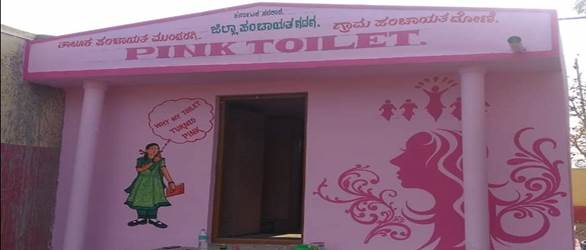Free Courses Sale ends Soon, Get It Now


Free Courses Sale ends Soon, Get It Now



Copyright infringement not intended
Context - In Karnataka, many Gram Panchayats have started the construction of “Pink Toilets” to promote the safety and security of women.
Details
Swachh Bharat Mission
Present Status
https://www.pib.gov.in/PressReleasePage.aspx?PRID=1817735
© 2024 iasgyan. All right reserved